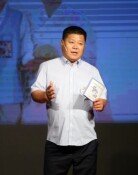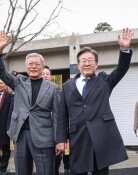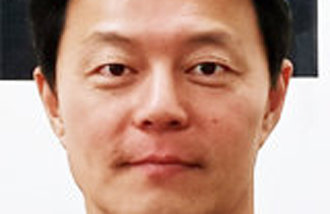Are CEO positions at state-run companies for politicians?
Are CEO positions at state-run companies for politicians?
Posted December. 21, 2015 08:13,
Korea Electric Power Corporation, one of Koreas major state-owned corporations with an asset of 200 trillion won (168.9 billion U.S. dollars), has not started a bid for a new CEO, even after the term of Cho Hwan-ik, the former CEO, ended. Heads of state-owned companies are appointed by the president after being deliberated by the Ownership Steering Committee under the Strategy and Finance Ministry. Despite the end of the term of CEOs at Korea National Oil Corporation and East West Power, they continue performing their duties. Heads of operations are serving as an acting CEO at Korea Midland Power and Korea Southern Power. This is the snapshot of state-run companies, which are now listed on the four main reform agenda of the government.
Some of them have recently begun a bidding process. Sources from these entities said, The government sent us a guideline to start the process. As they did nothing for a while and suddenly started the process in the run-up to a cabinet reshuffle and general elections, some say that the state-run companies are creating positions for those who fail to get nominated in the ruling Saenuri Party or get lost in general elections. It is only a formality, though it seems to be a public bidding, and the actual selection of CEOs will be postponed until the ruling party starts its nomination process.
Meanwhile, the heads of state-run corporations, who had their position through political influence, are stepping down without fulfilling their term in the run-up to general elections. Incheon International Airport CEO Park Wan-soo sent a letter to employees, saying that he is sorry for not keeping his word, and stepped down on Saturday. A former mayor of Changwon in South Gyeongsang Province, Park is said to run for the upcoming general elections. Korea Airports Corporation CEO Kim Seok-ki has also resigned from his position for the elections. Politicians who have neither expertise nor management capabilities are sent to state-run companies as a CEO and resign from their position for every election. Then how can state-owned companies be reformed?
State-run companies account for a significant portion of the Korean economy, as 12 of them represent 20 percent of 61 Korean conglomerates with assets over five trillion won (422.3 billion U.S. dollars). President Park Geun-hye stressed several times after her election, saying that there should be no appointment of politicians as CEOs, which discourages hardworking people, under the new administration. President Park said on Wednesday that the Korean economy will be in a crisis next year and needs to prepare for a contingency plan. If the Korean economy is in a crisis, the appointment of CEOs at state-run companies should be corrected first.







